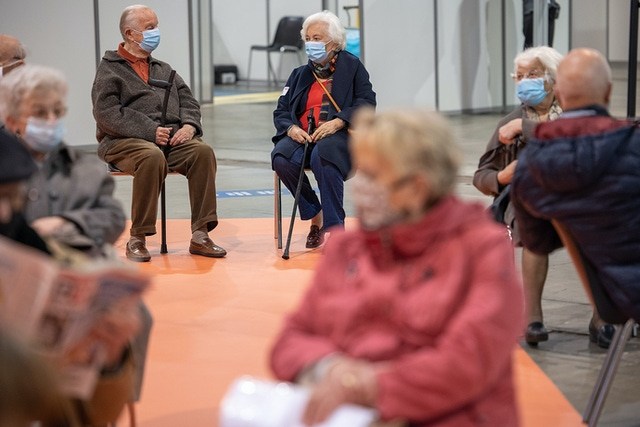This week, AstraZeneca is expected to deliver around 700,000 doses of its coronavirus vaccine to Belgium, which could open up the possibility of giving a second dose to vulnerable people more quickly.
Around 300,000 people living in Belgium, including many over 65 and people with underlying health conditions, were told they would have to wait until August to receive their second dose of the jab, but the delivery, expected on 29 June, could mean they will get their second shot in July.
On 12 May, Belgium decided to shorten the interval between two AstraZeneca doses from 12 to eight weeks, but only for people who received their invitation after this date.
However, many of the people who received their first shot before this date were people who belonged to the priority risk group and were therefore prioritised for vaccination, resulting in the possibility that others, who were not considered high-risk, would be fully vaccinated before them.
If the delivery is successful, the people involved should be able to log in again for a new date, said chair of the Vaccination Strategy Task Force, Dirk Ramaekers.
The remaining 400,000 shots from the delivery stockpile are intended for people who only had to wait eight weeks.
Related News
- 'Staying ahead of the virus': AstraZeneca tests modified vaccine against variants
- Brussels stops giving AstraZeneca vaccine to new people
Around nine out of ten people with underlying health conditions living in Belgium have received at least one shot, whilst half have been fully protected.
The task force has projected that, by the start of September, all people in Belgium over the age of 18 should be fully vaccinated, however, the coverage rate across the country remains uneven, as in Brussels the coverage rate is between 16% and 25% lower than in others.
In Flanders, where 79% of adults have received at least one dose, putting it in the first place when it comes to vaccine coverage, the campaign will start focusing on second doses from next week onwards.
Meanwhile, in Brussels, several initiatives have been taken to increase vaccine uptake. This week, residents will be able to visit the ten Brussels centres without an appointment.
Other solutions?
In some countries, including France, a first shot of AstraZeneca is followed a few weeks later by a second shot with Pfizer or Moderna in some cases, which could help speed up vaccination and combat vaccination rollouts being slowed down by AstraZeneca's delivery issues.
A study found that people who receive a second shot of the Pfizer/BioNTech vaccine after they got a first dose of AstraZeneca’s jab develop better protection against the coronavirus than after getting a second AstraZeneca dose.
However, Belgium has so far avoided implementing the mixing strategy, and the Vaccination Strategy Task Force has warned precautions should remain in place.

